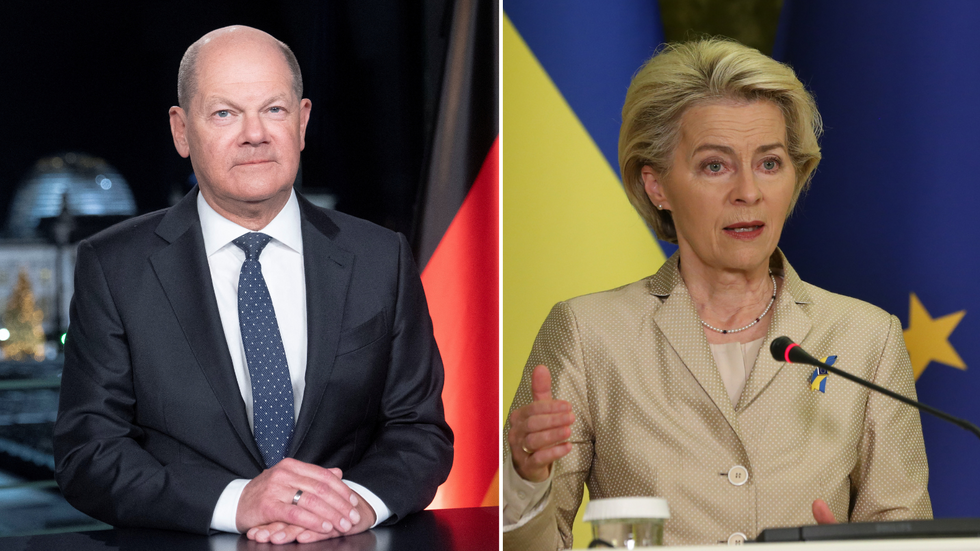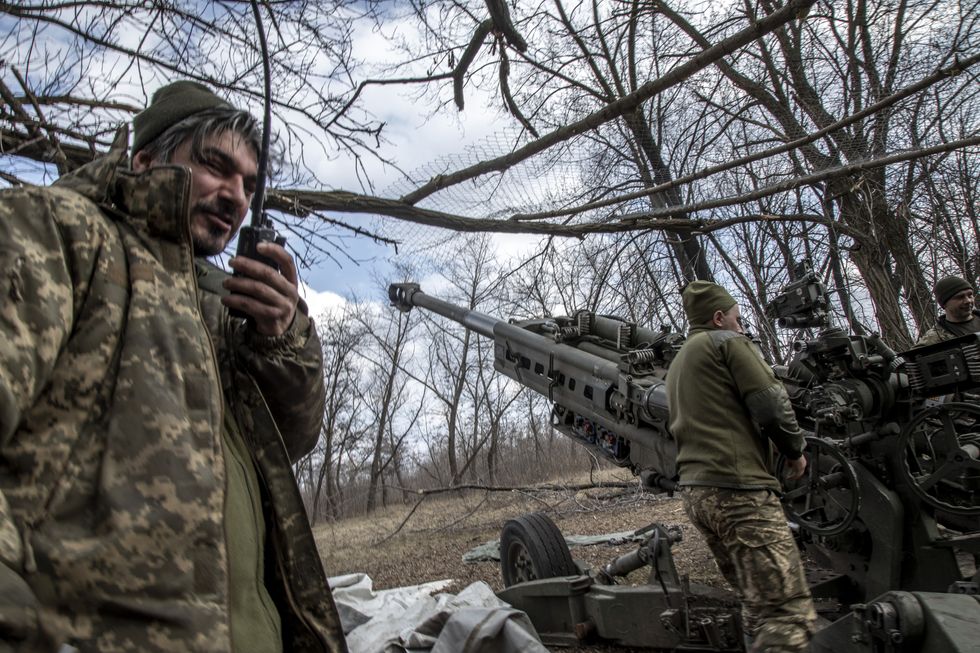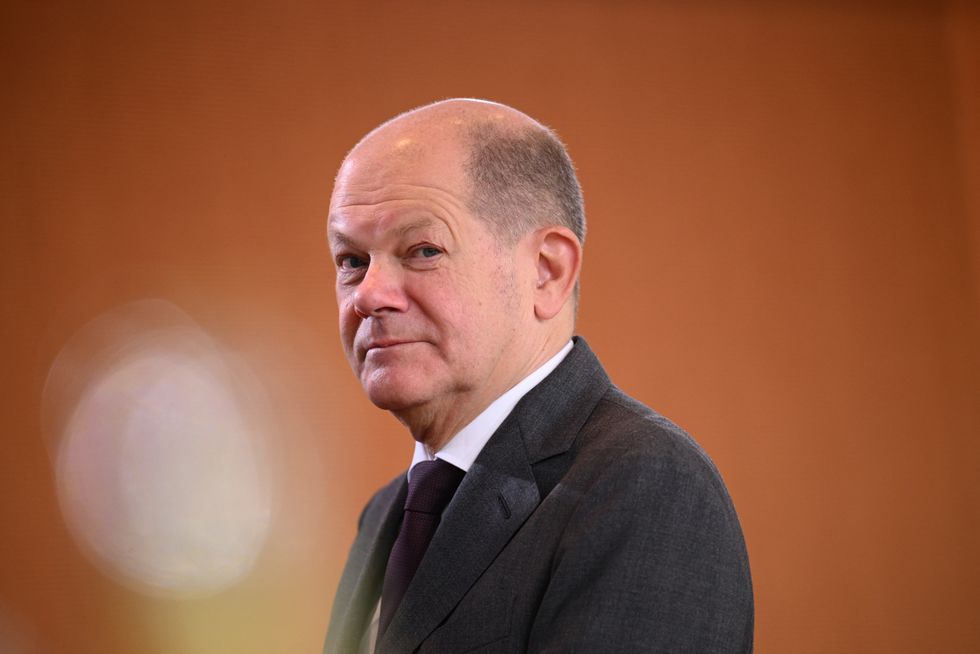EU left furious as Germany sidesteps Brussels on Ukraine: ‘It hasn’t fooled anyone!’
Berlin announced £6billion in aid for Ukraine yesterday
Don't Miss
Most Read
Trending on GB News
The European Union has criticised Germany for pledging €7billion (£6billion) in security assistance and humanitarian aid to Ukraine.
Olaf Scholz, the German chancellor, announced the bilateral support yesterday, as Berlin has been urging other EU countries to boost their military supplies to Ukraine.
However, Thierry Breton, the EU’s internal market commissioner, slammed Scholz for not backing Brussels.
“Today we see that Germany is trying to go solo, it hasn't fooled anyone, and in particular it is trying to stop supporting the European Peace Facility,” Breton told reporters in Paris.
 EU left furious as Germany sidesteps Brussels on Ukraine: ‘It hasn’t fooled anyone!’
EU left furious as Germany sidesteps Brussels on Ukraine: ‘It hasn’t fooled anyone!’Reuters/Getty
The European Peace Facility is an off-budget mechanism aimed at funding the costs of the EU’s offshore military operations, as well as funding aid to allies such as Ukraine.
Last month, Germany laid out a proposal which would allow member countries to discount bilateral military aid given to Ukraine from their contribution to the EPF.
Since Russia invaded Ukraine in February 2022, the EPF has provided €4.5billion (£3.8billion) worth of weapons to Kyiv.
It also drilled 34,000 Ukrainian troops are part of an EU training mission.
LATEST DEVELOPMENTS:

The EPF has provided €4.5 billion worth of weapons to Kyiv
GettyBerlin officials believe that countries with larger defence industries such as France or Spain should be spending money on creating new weapons, rather than using their existing military stocks, which the EPF then reimburses.
“For Ukraine it is decisive that military aid reaches it without delay," a German diplomat in Brussels told Politico.
“The EPF is useful but can be blocked by a single Member State as has happened time and again in the past. Bilateral support is direct and quick and should be considered as an at least equivalent contribution.”
It comes after Scholz and US President Joe Biden spoke yesterday on the phone to coordinate their countries' position on the ongoing war in Ukraine.
A spokesman for Berlin said the leaders agreed that it was of the utmost importance to provide Ukraine with financial, humanitarian and military assistance, which the White House also echoed.
However, worry is growing in some European countries that as the war wages on, the US aid to Ukraine could dwindle.

Scholz spoke with Joe Biden on the phone yesterday to coordinate their commitment to the ongoing war in Ukraine
ReutersDuring Donald Trump’s presidency, he spoke at the World Economic Forum in Davos, to which Breton was present.
Trump warned that the EU would have to stand by itself if it was attacked militarily.
“You need to understand that if Europe is under attack we will never come to help you and to support you,” Trump told European Commission President Ursula von der Leyen in 2020, according to Breton.
More recently, a $60billion (£47billion) Ukrainian aid package has been stalled in Congress by Republicans who say the money should instead be spent building a wall on the US’ southern border with Mexico.
Breton believes that the bloc should become less reliant on the US.
He said that American presidents in the past have suggested that Europe needs to become more defensively independent.
“It doesn't date back to the Trump presidency. President [Barack] Obama was already extremely vocal when he urged the Europeans to increase their defence efforts. This has obviously been taken up by President Trump in the terms I've described," Breton said, and "continued, I can tell you, with the Biden administration.
“This trend is more or less bipartisan by now. Of course, it's not expressed in the same way, that's for sure.”









